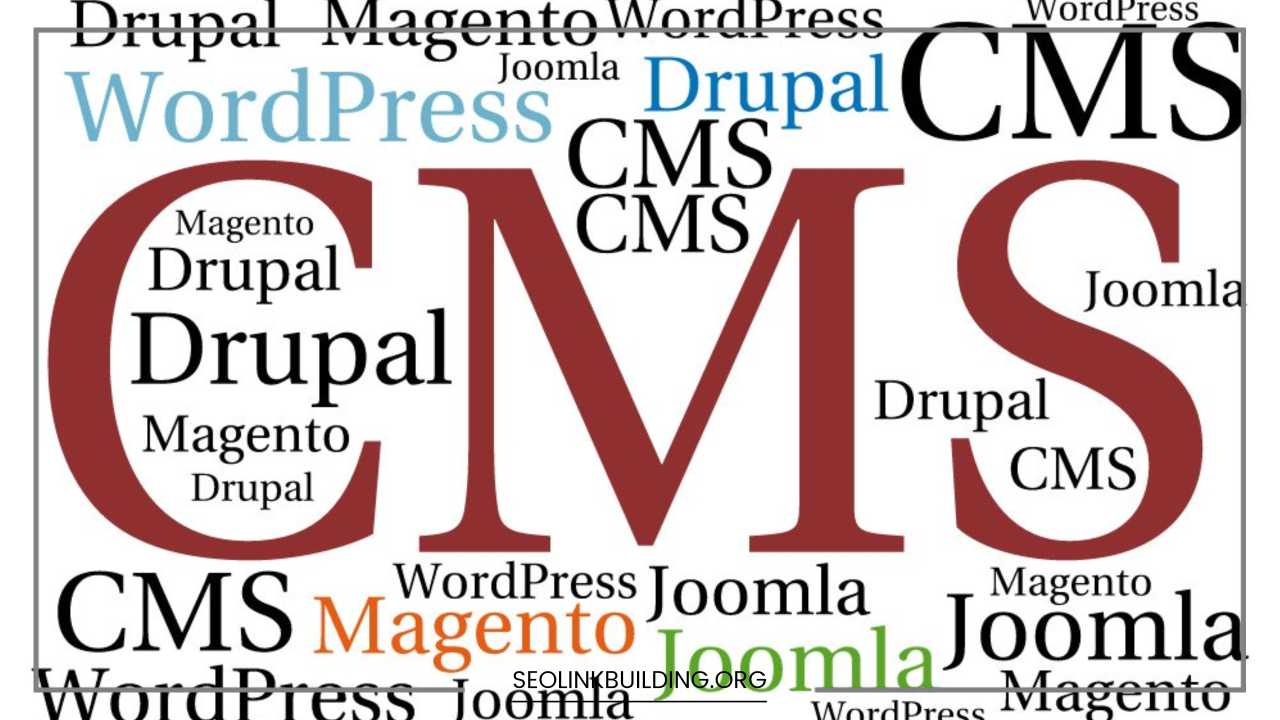Magento, Drupal, Joomla or WordPress CMS?

WordPress CMS
Magento, Drupal, Joomla, or WordPress: Choosing the Right CMS for Your Needs
In today’s digital age, a website is no longer a luxury – it’s a fundamental building block for businesses and individuals alike. But building a website from scratch requires coding expertise, which can be a daunting barrier for many.
This is where Content Management Systems (CMS) come in. A CMS provides a user-friendly interface for creating, managing, and updating website content without needing extensive programming knowledge.
However, with a plethora of CMS options available, choosing the right one for your specific needs can feel overwhelming. This blog post dives deep into four popular CMS platforms: Magento, Drupal, Joomla, and WordPress.
We’ll explore their strengths, weaknesses, ideal use cases, pricing models, and considerations for long-term success. Understanding your website’s purpose and functionalities is crucial before diving into the specifics of each platform. Here are some key questions to consider:
- Website Type: What type of website are you building? Is it a simple blog, a complex e-commerce store, a business website with a portfolio, a community forum, or something else entirely?
- Technical Expertise: What level of technical expertise do you have? Are you comfortable with some coding for advanced customization, or do you prefer a drag-and-drop interface for ease of use?
- Essential Features: What features are essential for your website? Do you need advanced security features, multilingual capabilities, extensive customization options, SEO tools, built-in analytics, or integrations with specific marketing platforms?
- Budget: Some CMS platforms offer free open-source options, while others have paid plans with additional features and support. Consider the costs of hosting, themes, plugins, and potential developer assistance.
Introducing the Contenders
Now, let’s get to know our four contenders in the CMS ring:
- Magento: Built specifically for e-commerce, Magento is an industry leader known for its robust features and scalability.
- Drupal: Renowned for its security, flexibility, and extensive customization options, Drupal caters to complex websites and web applications.
- Joomla: Offering a balance between user-friendliness and flexibility, Joomla is a popular choice for building various website types.
- WordPress: The undisputed king of user-friendliness, WordPress shines for creating blogs, simple business websites, and basic online stores.
Magento: The E-commerce Powerhouse
Strengths:
- Unmatched E-commerce Features: Magento offers a comprehensive set of features to manage products, orders, shipping, payments, customer accounts, promotions, and marketing campaigns. Its robust product catalog management, inventory control, and tax calculation capabilities are ideal for large-scale online stores.
- High Scalability: Magento can handle large product catalogs with millions of items and high traffic volumes, making it suitable for businesses anticipating significant growth.
- SEO Capabilities: Magento offers built-in SEO tools and integrates well with popular SEO plugins to improve your online store’s search engine visibility.
Weaknesses:
- Steeper Learning Curve: Compared to other options, Magento has a steeper learning curve. Some technical knowledge or developer assistance might be needed for setup, customization, and ongoing maintenance.
- Resource-Intensive: Magento is a robust platform, but its resource-intensive nature requires a robust web hosting plan with ample bandwidth and processing power to function optimally.
- Open-Source vs. Paid Features: The open-source version of Magento lacks some advanced features available in paid plans, such as advanced marketing tools and enterprise-grade security features.
Ideal Use Case:
Magento is the perfect choice for businesses looking to build a large-scale online store with advanced functionalities.
If you have a vast product catalog, anticipate high traffic, and require features like product variations, multi-warehouse management, and B2B functionalities, Magento’s scalability and robust features will prove invaluable.
Drupal: The Security Champion
Strengths:
- Exceptional Security: Drupal is renowned for its exceptional security features, making it ideal for websites handling sensitive data, such as financial transactions, medical records, or government information.
- Highly Customizable: Developers can build complex functionalities with extensive modules and themes available for Drupal. This makes it suitable for creating unique and highly customized websites.
- Strong Community Support: Drupal boasts a large and active community of developers and users. This translates to readily available resources for troubleshooting, finding solutions, and staying updated with security patches.
Weaknesses:
- Technical Knowledge Required: Drupal is less user-friendly than WordPress or Joomla. Setting up and managing a Drupal website can be time-consuming due to its complexity, and some technical expertise or developer assistance is often necessary.
- Steeper Learning Curve: The learning curve for Drupal can be steeper than other options. While it offers extensive customization possibilities, this complexity can be a barrier for beginners seeking a more user-friendly experience.
Ideal Use Case:
Drupal is ideal for organizations prioritizing security, such as government agencies, universities, healthcare institutions, and financial institutions.
It’s also a great choice for complex websites demanding extensive customization and unique functionalities, such as membership portals, e-learning platforms, and large community forums.
Joomla: The Balanced Contender
Strengths:
- User-Friendly Interface: Joomla offers a good balance between user-friendliness and flexibility. Its intuitive interface makes it easier to learn and use compared to Drupal, allowing beginners to create and manage websites without extensive coding knowledge.
- Wide Range of Extensions: Joomla has a vast extension library offering additional functionalities and design possibilities. You can find extensions for various needs, including SEO, marketing automation, e-commerce, user management, and multilingual capabilities.
- Multilingual Support: Joomla supports multilingual websites out of the box, making it a good option for businesses targeting a global audience. You can easily create and manage content in different languages.
Weaknesses:
- Extension Limitations: While the extension library is vast, it may not be as extensive or well-maintained as WordPress’s plugin ecosystem.
- Customization Limitations: Compared to Drupal, Joomla offers somewhat limited customization options, especially for complex functionalities.
Ideal Use Case:
Joomla is a versatile CMS suitable for building various websites. It’s a good fit for businesses with:
- Simple to Medium-Sized Online Stores: While not as robust as Magento, Joomla can handle basic e-commerce needs with appropriate extensions.
- Business Websites with Portfolios: Joomla allows showcasing products, services, and team profiles with ease.
- Community Websites and Forums: Joomla’s user management features and extension availability make it suitable for building community-driven platforms.
- Multilingual Websites: Joomla’s built-in multilingual support allows businesses to reach a global audience.
WordPress: The User-Friendly King
Strengths:
- Unmatched User-Friendliness: WordPress remains unmatched in user-friendliness. Its intuitive interface with drag-and-drop functionality allows anyone to create and manage content without coding knowledge. This low barrier to entry makes it a popular choice for beginners and non-technical users.
- Massive Plugin Ecosystem: WordPress boasts the most extensive plugin ecosystem of any CMS platform. You can find plugins for virtually any functionality imaginable, from SEO and social media integration to contact forms, marketing automation, and advanced security features. This vast selection allows you to extend your website’s capabilities without extensive coding.
- Large and Active Community: WordPress benefits from a large and active community of developers, designers, and users. This translates to readily available resources for troubleshooting, finding solutions, and accessing a wide range of themes and plugins.
Weaknesses:
- Security Concerns: Out-of-the-box, WordPress can be more vulnerable to security threats compared to Drupal. However, this risk can be mitigated with the use of strong security plugins and following best practices for maintaining your website.
- Scalability Limitations: While WordPress can handle large websites with significant traffic, it may not be the best choice for extremely high-traffic websites or those requiring complex functionalities that heavily rely on custom code.
Ideal Use Case:
WordPress is a great choice for a variety of website types, including:
- Blogs: WordPress started as a blogging platform and remains the most popular choice for bloggers. Its user-friendly interface and vast selection of blogging themes make it ideal for creating and managing content-driven websites.
- Simple Business Websites: With a wide range of business-oriented themes and plugins, WordPress is suitable for building professional websites for showcasing services, portfolios, and contact information.
- Basic Online Stores: While not as comprehensive as Magento, WordPress offers e-commerce functionality with plugins like WooCommerce. This makes it suitable for businesses with a limited product catalog or those looking for a quick and easy way to set up a basic online store.
- Landing Pages: WordPress can be used to create effective landing pages for marketing campaigns or lead generation.
Choosing the Right CMS: A Decision Framework
Now that you have a better understanding of each platform’s strengths and weaknesses, here’s a framework to help you choose the right CMS for your needs:
- Website Type: Consider the type of website you’re building. If you need a complex e-commerce store, Magento might be the best option. For a simple business website, WordPress or Joomla could suffice.
- Technical Expertise: Evaluate your comfort level with coding. If you prefer a user-friendly drag-and-drop interface, WordPress or Joomla might be better suited. For complex customization needs, Drupal offers more flexibility but requires more technical knowledge.
- Essential Features: Identify the features crucial for your website. If security is paramount, Drupal excels. Need extensive e-commerce features? Magento reigns supreme. Consider SEO capabilities, multilingual support, and integrations with other marketing tools.
- Budget: Factor in the cost of themes, plugins, hosting, and potential developer assistance. Open-source platforms like WordPress and Joomla offer free core software, but additional features might require paid plugins or themes. Magento and some Drupal functionalities often require paid subscriptions or custom development.
- Long-Term Needs: Consider your website’s growth potential. If you anticipate significant traffic or a complex website structure, scalability becomes a crucial factor. Magento and Drupal offer better scalability for large websites.
Additional Considerations
- Community Support: A larger and more active community translates to easier access to resources, tutorials, and troubleshooting assistance. WordPress and Joomla boast vibrant communities, while Drupal’s community is also strong, though more geared towards developers.
- Ease of Use: If you prioritize a user-friendly experience for content creation and management, WordPress and Joomla are strong contenders. Drupal offers more flexibility but comes with a steeper learning curve.
- Design Flexibility: All platforms offer a wide range of themes to cater to different design styles. WordPress, with its massive theme marketplace, might offer the most extensive design options. However, all platforms allow for custom theme development for truly unique designs.
Final Word
Choosing the right CMS is crucial for the success of your website. By carefully evaluating your needs, technical expertise, budget, and long-term goals, you can select the platform that best fits your project. Remember, there’s no single “best” CMS – the ideal choice depends on your specific requirements.
Utilize this framework and the detailed information provided to make an informed decision that empowers you to build and manage your website effectively.













